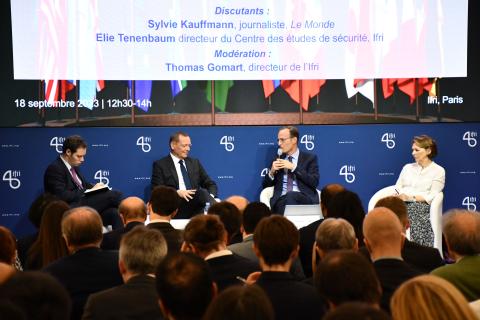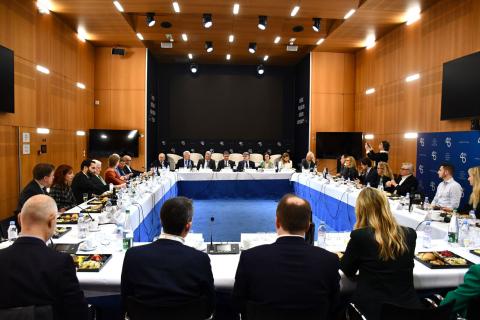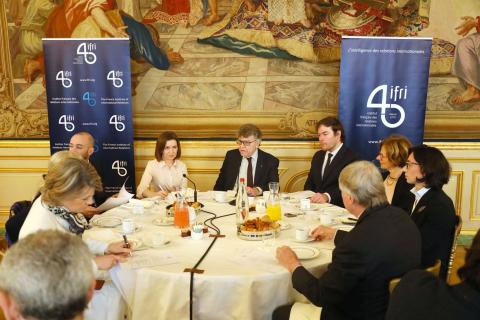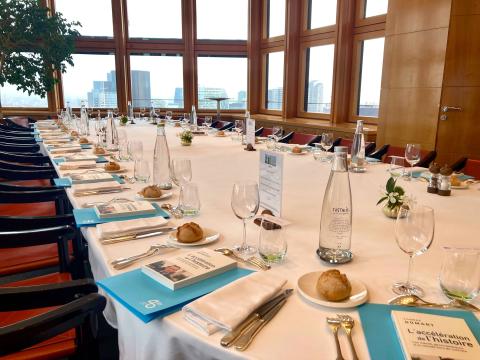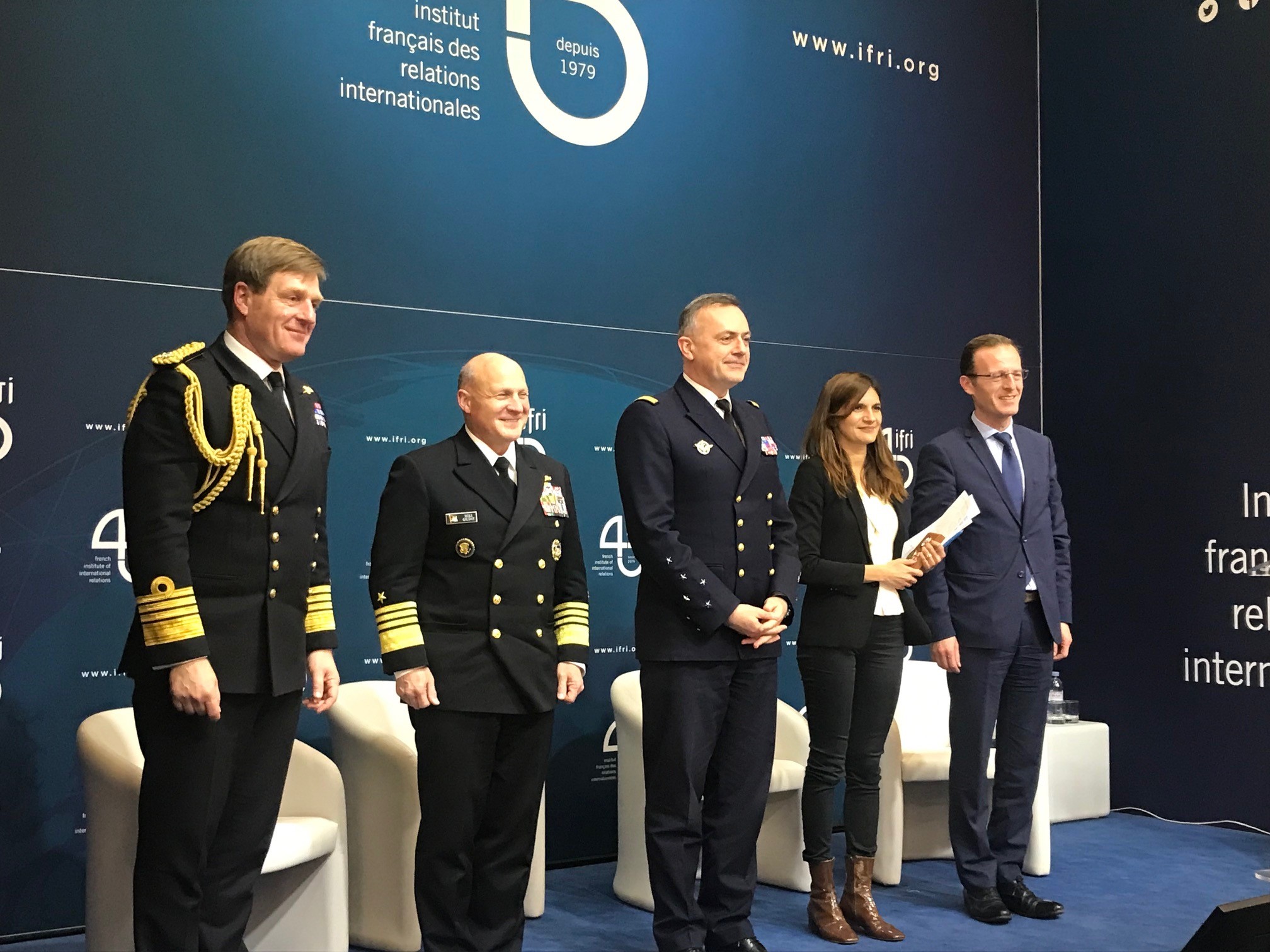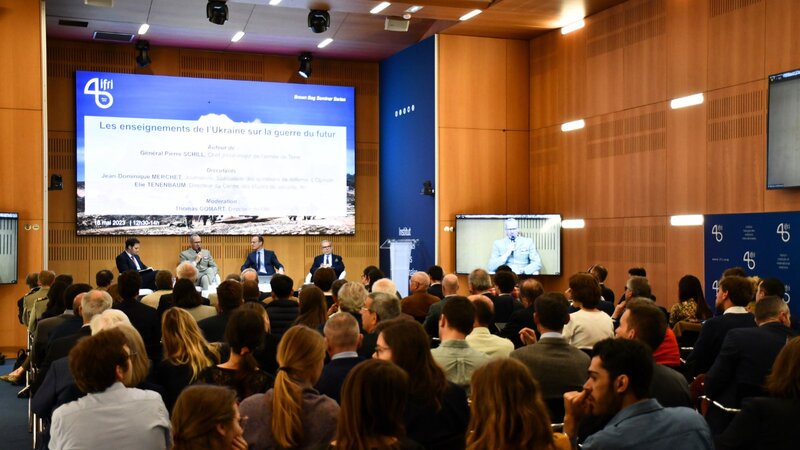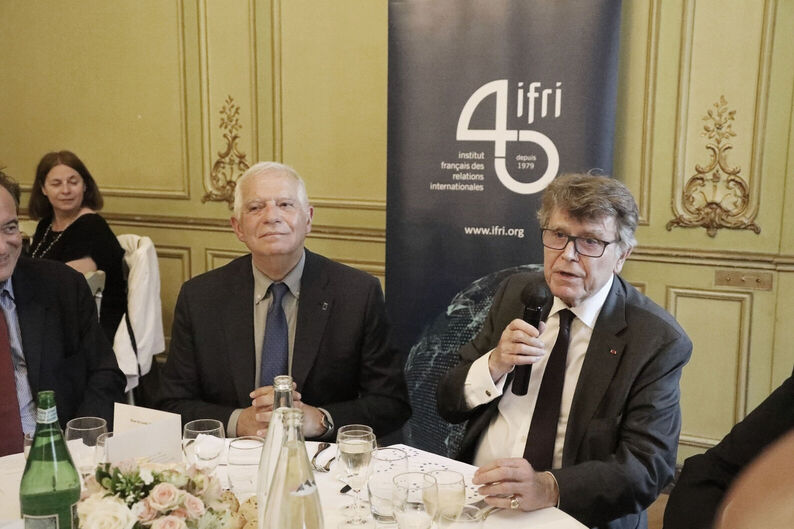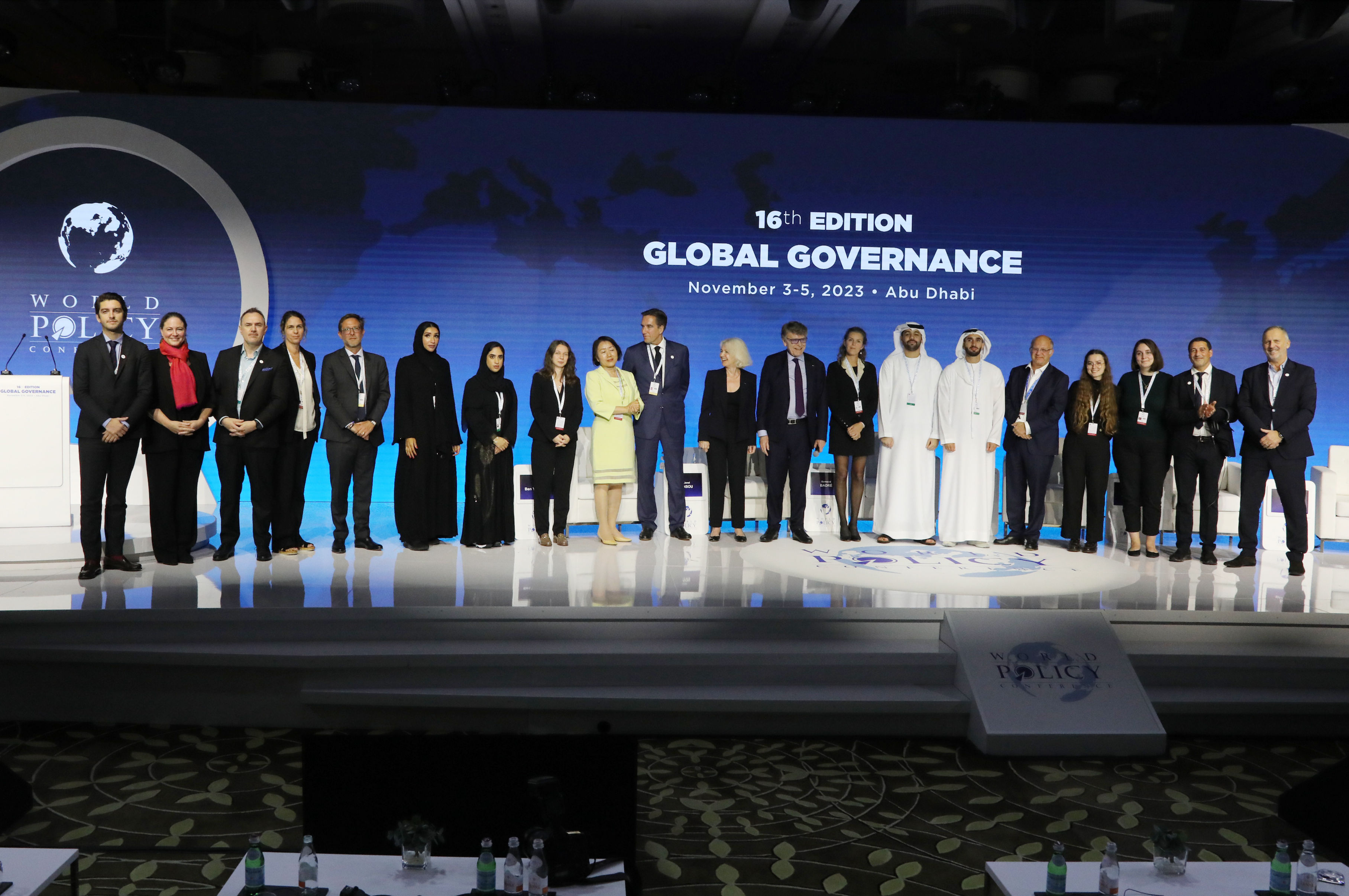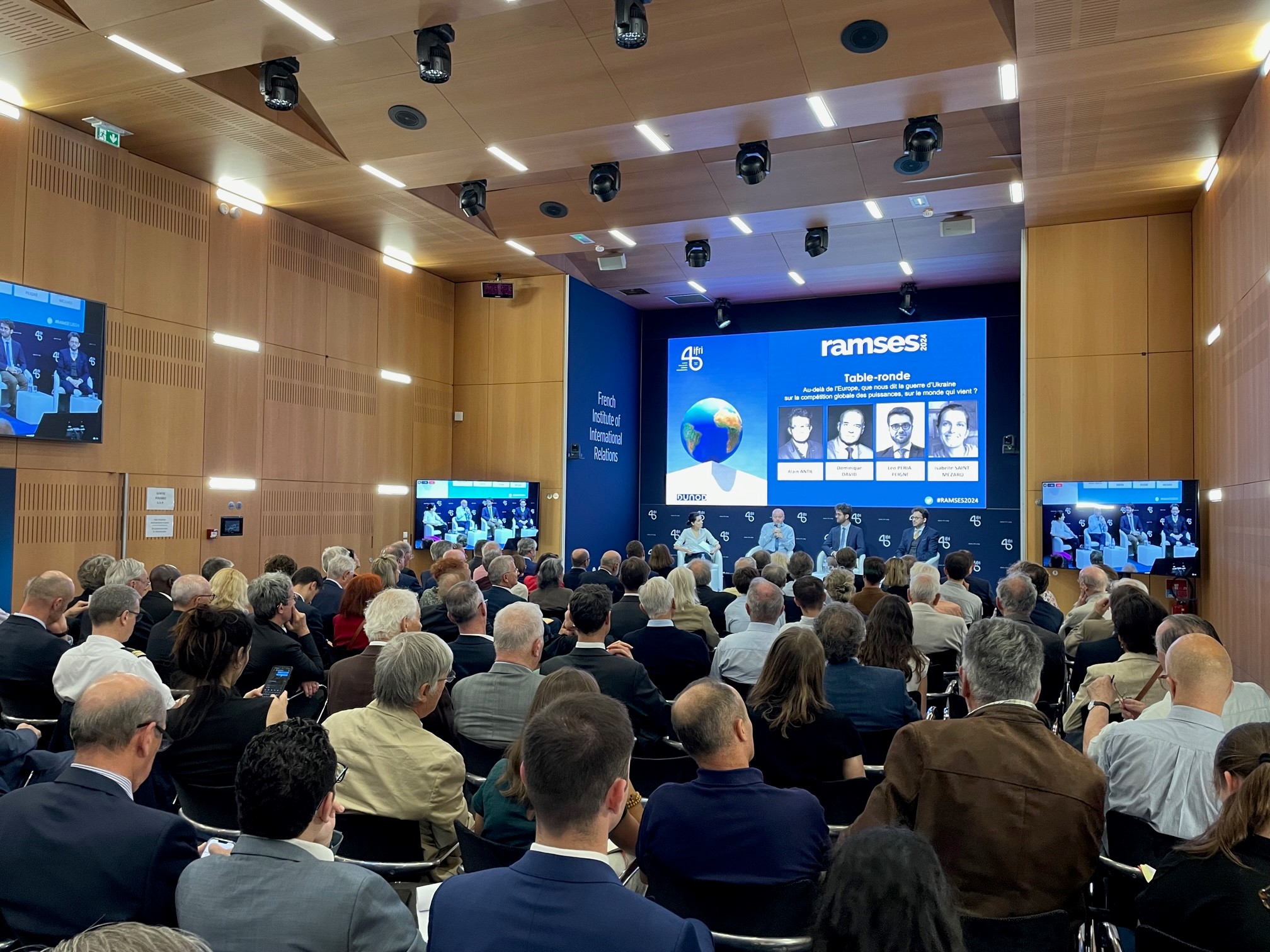
Titre
Events
Filter results

Shaping Europe’s Technological Sovereignty
In the wake of Donald Trump's re-election in the United States, Europeans face a crucial imperative: rethinking their sovereignty, especially in the technological realm. What will be the strategic priorities and action levers of the new European Commission on this issue? What assessment can we make of the previous Commission’s achievements and challenges in navigating Sino-American technological competition, transatlantic dependencies, and emerging global partnerships?
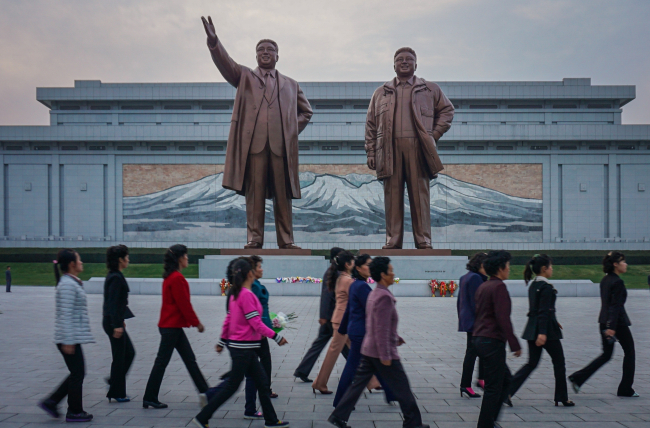
North Korea Beyond Nukes: Focusing on the Human Rights Challenge
Debates surrounding North Korea are primarily focused on security issues, particularly nuclear and ballistic concerns, relegating the critical situation of the North Korean population and human rights violations to the background. The lack of information about the real living conditions of North Koreans contributes to the absence of attention and discussion on this crucial issue.

Lunch Debate with Winston Peters, Deputy Prime Minister and Minister of Foreign Affairs of New Zealand
Discussion co-chaired by Thierry de Montbrial, Executive Chairman of Ifri, member of the Academy of Moral and Political Sciences, and Marc Hecker, Deputy Director of Ifri (in English without translation).
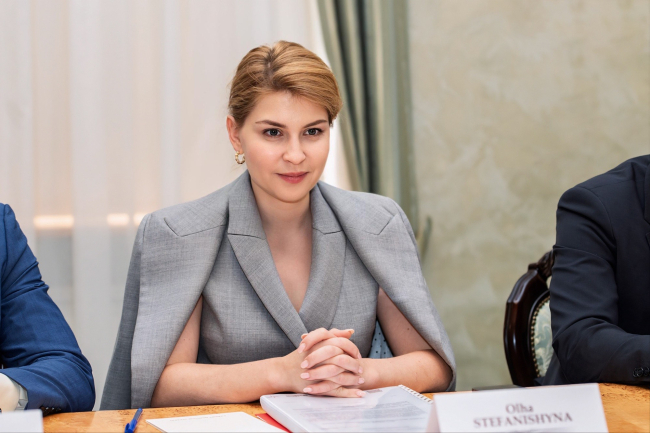
Navigating War, Reforms, and Secure Future: Ukraine’s EU and NATO Accession Path
Exclusive conve
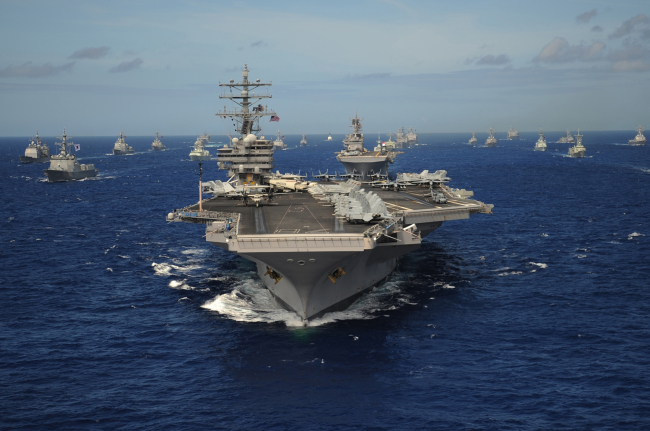
Allied and Aligned? The Future of Alliances in the Indo-Pacific after the US Elections
Annual Conference of Ifri's Center for Asian Studies
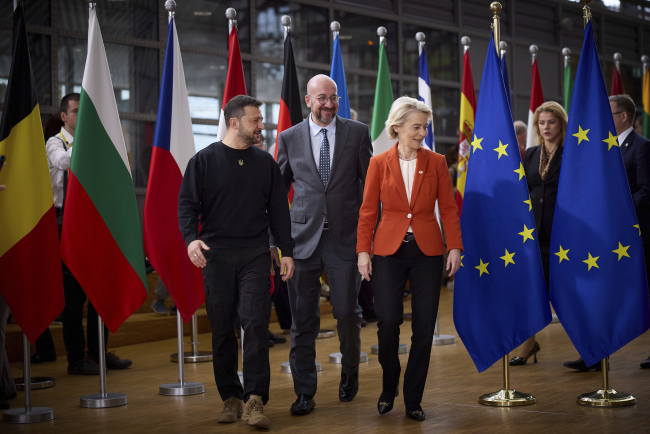
The challenges to European security in light of Russia’s war in Ukraine
As part of the Season of Lithuania in France, Ifri, in partnership with the Lithuanian Embassy in France, is organizing a closed-door seminar on the challenges of European security in the light of the war in Ukraine.
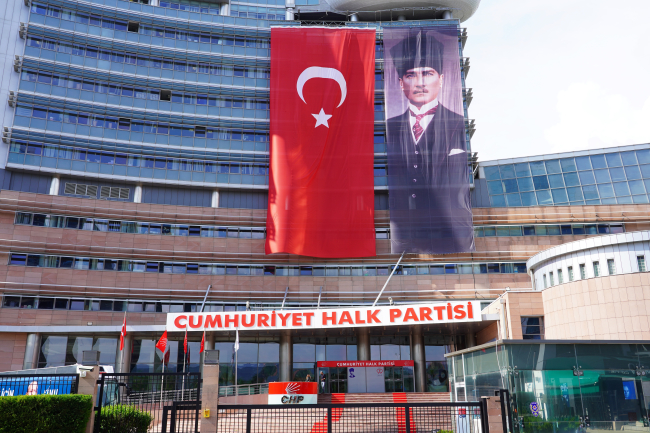
The Renewal of the opposition in Türkiye: the 'Kemalists' in the post-AKP perspective
In March 2024, the triumph in municipal elections of the Kemalist CHP party, main opposition force to Recep Tayyip Erdoğan and the Islamo-conservatives, reinforces its image as a potential political alternative in Türkiye.

NATO: 75 Years of Strategic Solidarity
The war in Ukraine, burden-sharing between Allies, U.S. disengagement from Europe, new areas of conflict... At a time when the Alliance has just celebrated its 75th anniversary and the Stoltenberg era is drawing to a close after ten years at the head of the organization, NATO's agenda bears witness to the diversity of its areas of action, as well as to the different perceptions of the Allies on these issues.
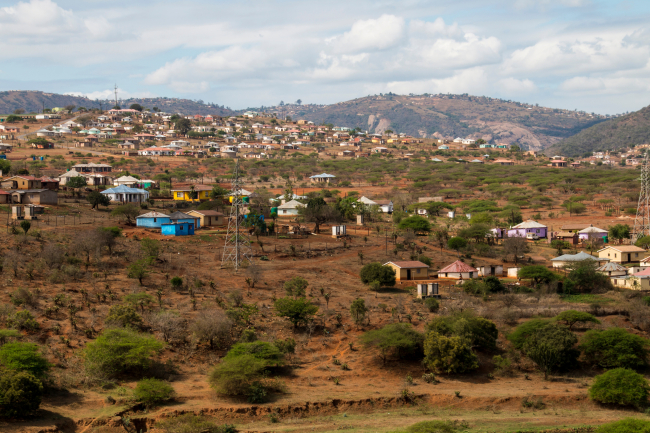
Governing the urban fringes: the impacts of Africa’s urban growth on peri-urban areas
The rapid expansion of Africa’s cities is considered as one of the continent’s main socio-economic challenges.
Unlike in Europe, North America and East Asia, the spatial trend of urban expansion in sub-Saharan Africa is horizontal. Rather than growing upward through taller buildings, Africa’s cities expand into their peri-urban rural outskirts. Thus, peri-urban areas are undergoing considerable spatial, socio-economic and administrative change: farmland is absorbed by buildings and commercial activities, land prices are spiking and new class dynamics can be observed.
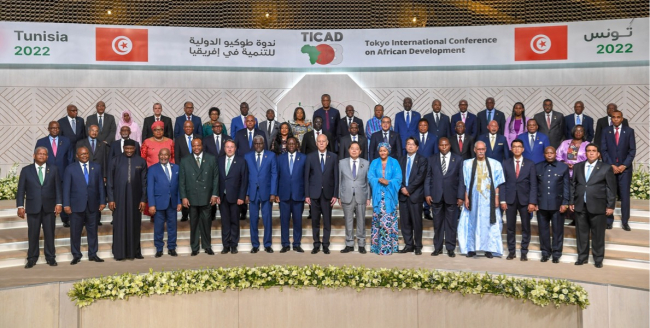
France-Japan Dialogue on African development: Toward the TICAD 9
Every three years, the Tokyo International Conference on Afr
Event Series
Latest retrospectives
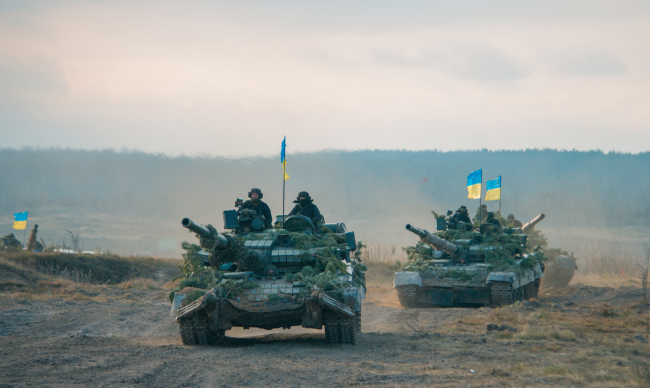
Reading the Russian-Ukraine War: A Look at Western Analytic Failures
After three years of war, the situation in Ukraine is still dire, with a lot of uncertaineties on the battlefield. But this fog of war has begun from the very outset of the conflict. Strategic research and analyses have been marred with biases and misjudgments that tell a different story about Western perception and preferences in warfare. This is the claim of a CSIS report authored last September by Prof. Eliot A. Cohen, Prof. Phillips O'Brien and foreword by Prof. Hew Stracham.
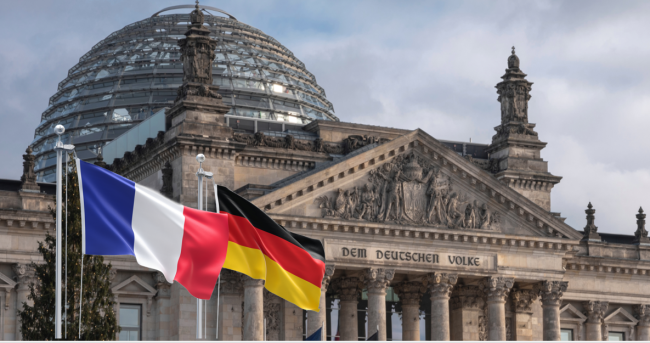
70 Years of Franco-German Relations: Between Heritage and Future Challenges
The Study Committee on Franco-German Relations (Cerfa) is celebrating its 70th anniversary this year.
The Cerfa was created in 1954 by an intergovernmental agreement between the Federal Republic of Germany and France, against a backdrop of Franco-German reconciliation. Belonging to the French Institute of International Relations (Ifri) since its creation in 1979 by Thierry de Montbrial, it is one of its pillars.

The Future European Space Law: a New Model of Development?
As a new European Commission prepares to define the Union's strategic priorities, the objectives and content of the future space law are being called into question. How can Europe respond to the new economic, geopolitical and ecological challenges posed by space?
Titre événement en image
Ifri in Pictures
Support independent French research
Ifri, a foundation recognized as being of public utility, relies largely on private donors – companies and individuals – to guarantee its sustainability and intellectual independence. Through their funding, donors help maintain the Institute's position among the world's leading think tanks. By benefiting from an internationally recognized network and expertise, donors refine their understanding of geopolitical risk and its consequences on global politics and the economy. In 2024, Ifri will support more than 70 French and foreign companies and organizations.







